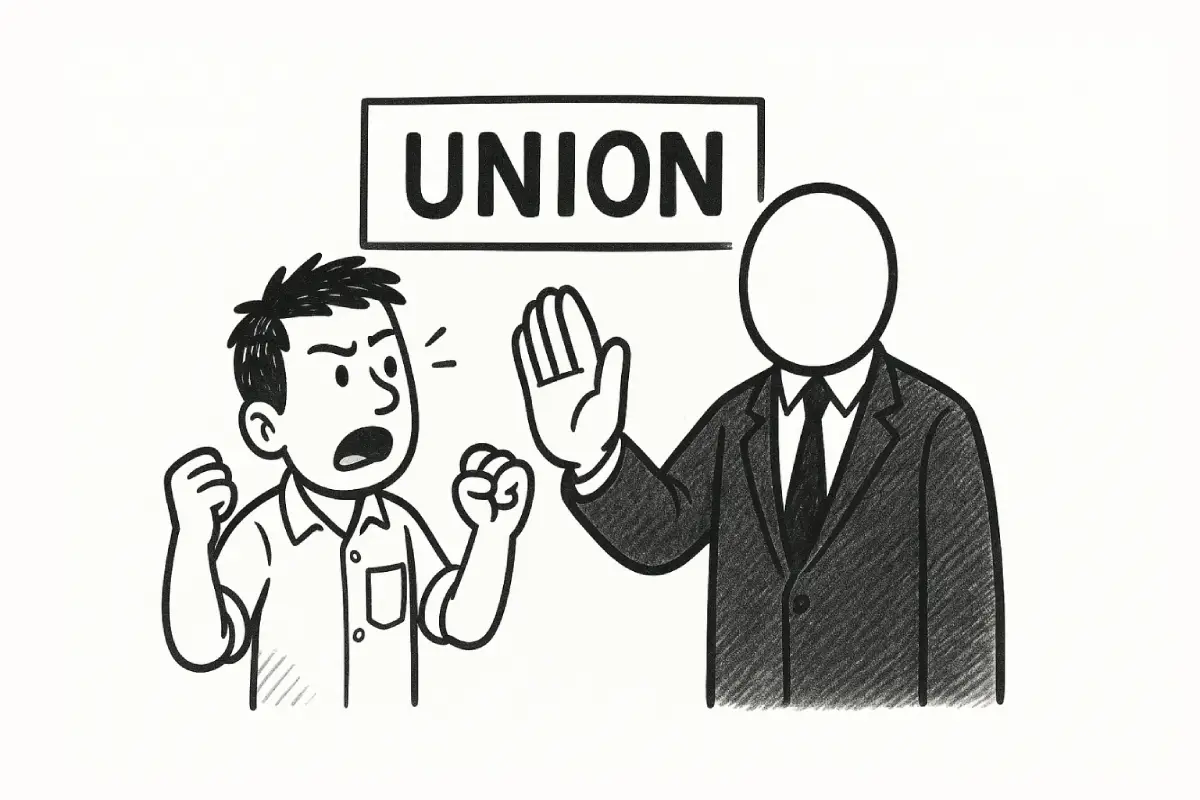The whole “future of work” conversation is getting a little tired, isn’t it? It’s been the talk of the town since at least 2020, a constant drumbeat of remote work, digital nomads, and the gig economy. We get it. The office is dead, long live the couch. But what we’re not talking about nearly enough is the plumbing of this new world. The actual infrastructure. I’m talking about the platforms, the digital marketplaces where all this so-called “freedom” is bought and sold.
Because that’s the rub. For every freelancer living their best life on a beach in Bali, there are a hundred others grinding away, bidding for pennies on projects that will suck their souls dry. The platforms that got us here—the Upworks, the Fiverrs—they were revolutionary, I guess. A necessary evil, maybe. They connected a global talent pool with businesses that desperately needed them. But they also turned skilled work into a commodity, a race to the bottom where the cheapest bid often wins and the platform itself skims a healthy percentage off the top for the privilege. It’s a bit of a raw deal when you think about it.
So, what’s next? If the last decade was about building these massive, one-size-fits-all gig bazaars, the next few years, leading up to 2026, are going to be about the great unbundling. It’s about specialization. It’s about community. And it’s about—dare I say it—valuing human talent again.
The Slow Implosion of the Mega-Marketplace
I think we’re already seeing the cracks in the foundation of the big players. They’ve become bloated, noisy, and frankly, a pain to navigate for both clients and freelancers. Clients post vague projects and get flooded with hundreds of copy-pasted proposals from bots or desperate bidders. It’s a nightmare of filtering. Good clients, the ones with real budgets and interesting work, are getting harder to find amidst the chaos.
“The problem with a marketplace that has everything is that it has everything. You want a world-class brand strategist? They’re in there, somewhere. But you have to wade through a sea of people who will design your logo for five bucks and a can of Coke first.”
For freelancers, it’s a constant battle against the algorithm. You have to game your profile, obsess over your Job Success Score, and write proposals that are basically SEO-optimized sales pitches. The work itself becomes secondary to the work of getting the work. It’s exhausting. And it’s a system that inherently favors generalists and volume players over deep specialists who command—and deserve—higher rates.
This isn’t just a feeling; the data points to a shift in how independent professionals are thinking. A 2023 report from McKinsey on independent workers highlighted a growing desire for “autonomy, meaning, and flexibility,” things that the mega-platforms, with their rigid rating systems and high commissions, often stifle rather than support. The system is just too… transactional. It’s built for gigs, not for careers.
So, where do the savvy freelancers and the smart clients go? They’re starting to congregate in smaller, more exclusive ponds.
The Rise of the Niche: Curated and Vertical Platforms
The future, as I see it, is niche. It’s vertical. It’s boutique. Instead of one platform to rule them all, we’re going to see a Cambrian explosion of platforms dedicated to specific industries, skill sets, and even work philosophies. Think less of a sprawling digital Walmart and more of a curated corner bookstore where the owner knows your taste.
For the Creatives, It’s All About Curation
Creative fields are leading this charge. Platforms like Working Not Working, which started as a high-end directory for top-tier advertising and design talent, are a great example. You can’t just sign up; you have to be invited or approved. This vetting process is key. It signals quality to clients and ensures that the freelancers on the platform aren’t competing with a million lowballers. It’s a walled garden, sure, but the grass is a whole lot greener inside.
We’ll see more of this. Imagine a platform just for documentary film editors. Or one exclusively for UX writers who specialize in fintech. Or a marketplace for world-building artists for the gaming industry. These platforms won’t just be job boards; they’ll be communities. They’ll host events, offer resources, and facilitate mentorship. They’ll understand the specific language and needs of their industry in a way a behemoth like Upwork never could. The value proposition isn’t just “find work,” it’s “build your career among your people.”
The Hyper-Specialists: Where Top Tech Talent Hides
This trend is even more pronounced in the tech world. The demand for highly specialized developers, data scientists, and cybersecurity experts is through the roof. These professionals have zero interest in fighting for scraps on Fiverr. They go to places like Toptal (which famously boasts about accepting only the top 3% of applicants) or Braintrust, a decentralized, user-owned talent network.
Braintrust is particularly interesting. It’s a glimpse into a potentially fairer future. Because it’s a cooperative model (run by a non-profit foundation and governed by its members via a crypto token), it takes a much smaller cut of the transaction. Freelancers keep more of their earnings, and clients get access to elite, vetted talent without the insane markups of traditional staffing agencies. It’s a model that aligns the incentives of the platform with the incentives of its users, which is a shockingly novel idea in the gig economy space. This isn’t some far-off dream; according to their own public data, their network has facilitated hundreds of millions of dollars in work, with major companies tapping into their talent pool.
The prediction for 2026? Every high-skill, high-demand industry will have its own Braintrust or Toptal. Finance, biotech, legal, engineering—you name it. The best talent will migrate to these exclusive platforms where their skills are understood, respected, and properly compensated.
The Wildcard: AI, DAOs, and the Tech-Driven Shift
You can’t talk about the future without talking about AI. But its role might not be what you think. Yes, AI will automate some tasks. Duh. But it will also become a super-powered assistant for freelancers. The real game-changer isn’t AI as a replacement, but AI as a tool that allows individual freelancers to compete with entire agencies. An AI can handle the admin, the research, the first drafts, freeing up the human to focus on the high-level strategy, creativity, and client relationships—the stuff that actually matters.
The platforms that win in 2026 will be the ones that integrate these tools seamlessly. Imagine a platform that doesn’t just list jobs but provides its freelancers with a suite of AI-powered tools to help them do their work better and faster. A writer’s platform with a built-in AI research assistant. A designer’s platform with generative AI for mood boarding. A developer’s platform with an AI co-pilot for debugging.
“Everyone’s worried AI is coming for their jobs. I’m not. I’m worried about being forced to work without it. The platforms that get that will be the ones that thrive.”
And then there’s the really weird stuff. DAOs (Decentralized Autonomous Organizations) and other Web3 concepts. It sounds like jargon-y nonsense, I know. But the core idea is powerful: a platform owned and operated by its users. No central authority, no VCs demanding ever-increasing profits. Decisions are made collectively, and value is distributed among the people who create it. Braintrust is an early, somewhat centralized version of this, but by 2026 we could see fully decentralized platforms for freelance work emerge.
It’s a radical vision, and there are a million hurdles to overcome—usability, regulation, the sheer weirdness of it all. But it points to a future where freelancers have genuine ownership and a voice in the platforms they rely on. It’s a long shot, maybe, but it’s a hell of a lot more inspiring than getting another email about a low-budget gig you have no interest in.
The Unshakeable Value of Being Human
Here’s the thing, though. For all the talk of technology and specialization, the biggest shift I see coming is a renewed appreciation for the human element. As AI handles the mundane and the repetitive, the truly valuable skills will be the ones that are hardest to automate: critical thinking, emotional intelligence, creative problem-solving, and the ability to build a real relationship with a client.
The platforms of the future won’t just be matching skills to tasks. They’ll be facilitating relationships. They might use algorithms to suggest potential long-term collaborators based on work styles and personality, not just keywords. They might build in tools for better communication and project management that feel less like corporate surveillance and more like a shared creative space.
We might even see the rise of “slow freelancing” platforms. Places that reject the high-churn, low-cost model in favor of connecting clients and freelancers for deep, meaningful, long-term projects. It’s about finding your “work soulmate,” not just your next gig.
Ultimately, the freelance platforms that dominate in 2026 won’t be the biggest or the cheapest. They’ll be the most focused. They’ll be the ones that build real communities, that empower their members with cutting-edge tools, and that understand that freelancing isn’t just about finding a job—it’s about building a career, a business, and a life. It’s a messy, unpredictable evolution, and it won’t be a straight line. But for the first time in a while, it feels like the power might finally be shifting back to the people who actually do the work. And that’s something to be genuinely excited about.
You might also like: Do U.S. Workers Really Have the Right to Unionize? The Facts vs. Reality









